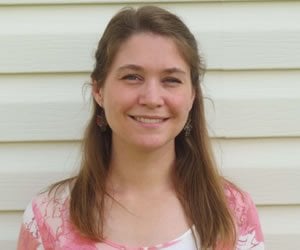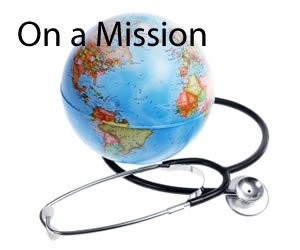“Only God can judge me.” Tupac Shakur rapped these famous lyrics in his All Eyez on Me Album in 1996. Although this song stands far removed from the field of medicine, the statement “only God can judge me” is a reflection of one of our modern culture’s values: we simply do not like being judged.
This truth seems to resonate particularly in clinics and hospitals throughout the US. Physicians see patients of all different colors, shapes, and sizes and many of these patients enter into clinics with emotional wounds inflicted from previous physicians’ lack of judgmental tact. These patients have been negatively looked upon because of their skin color, weight, gender and countless other reasons resulting in an understandable defensiveness towards any medical professional. In addition, a fair number of patients, myself included, while not completely jaded, have had significant negative experiences with doctors. One of the most dangerous pathologies identified in a doctor’s office, ironically has nothing to do with actual “medicine”. What hurts the most is diagnosing the prejudice influencing our physicians’ health care.
medicine
5 Tips for Your Medical School Interview: Advice from a Recent Admit
Think of the medical school interview as a giant, modern dating ritual. Your AMCAS application and secondary essay were the first two online dates, and now you have agreed to meet each other in person. The admissions committee already has a rough skeleton of the greatest hits of your adult life, and they have decided that they really like you. However, before they will extend a proposal, they need to meet you in person, and they are willing to spend enormous amounts of their time and your money to arrange this meeting. What your interviewer writes about you for the admissions committee will either make your application come alive, remain flat on the paper, or tragically fail.
A U.S. Medical Student’s Experience in Germany
As a medical student from the U.S., it is always fascinating to experience how medical care is delivered in other countries. As our health care expenditures balloon to unprecedented levels, the topics of medical care and medicine in general have never been more pervasive. From this dialogue, comparisons between the U.S. and international health care systems are naturally made, but few people outside of those who do medical tourism, international rotations, or medical humanitarian work actually experience the differences firsthand. Experiencing medicine in countries with drastically different systems than the U.S. is highly valuable for U.S. medical students, both in clinical practice and in understanding the business and legal aspects of medicine.
20 Questions: Diana Marie Padgett, MD, Pathology
Diana Marie Padgett, MD, an anatomic and clinical pathologist, is president and treasurer at Pathology Associates of Harrisonburg (Virginia), as well as medical advisor to Blood Bank and Point of Care Testing. She received her bachelor’s degree in biology with a minor in biochemistry from University of Tennessee, Knoxville, where she graduated summa cum laude (1998). She received her MD from University of Tennessee Health Sciences Center in Memphis, where she graduated summa cum laude (2003). She also has a one-year degree in Dutch studies from Leiden University (1997), and has successfully completed USMLE Step 1 (2001), Step 2 (2003) and Step 3 (2005). Dr. Padgett completed a residency in combined anatomic and clinical pathology at University of Virginia Health System in Charlottesville (2003-2007), and a fellowship in pediatric and development pathology at University of Tennessee Health Science Center/St. Jude Children’s Research Hospital/LeBonheur Children’s Medical Center in Memphis (2007-2008).
Dr. Padgett is board certified in combined anatomic and clinical pathology and pediatric pathology. She previously worked at St. Jude’s Research Hospital Department of Structural Biology in the Professional Oncology Education Program (1999), as well as University of Tennessee, Memphis, Department of Ophthalmology as a senior research assistant (1998-1999). Dr. Padgett has been published in the American Journal of Surgical Pathology, Infection and Immunity, Surgical Neurology, Archives of Pathology & Laboratory Medicine, American Journal of Neuroradiology, and Ophthalmic Research.
Global Health Research Ethics, Part 1: Gaining Experience
Students considering what to do during their summer break in medical school or public health school often face a dilemma in choosing what to do. The commonly held belief is that in order to build your resume, you must undertake a research project. Volunteering for a global health program, either focused on provision of medical care or public health oriented, is perceived as the weaker choice, one that won’t look as good to your future employers.
There are several underlying reasons for this perception, for example, many employers come from a more traditional perspective and were trained prior to the proliferation of global health opportunities. They and their peers may not have had similar experiences and may not identify with how formative or educational they can be, or be familiar with the types of skills that can be gained through participation. Another reason for trepidation is that the quality of global health opportunities is so widely variable, and many loosely organized and informal programs exist. Nearly anyone can get in to a global health volunteer program of some sort, as long as they are willing to pay, since such programs serve as income generation mechanisms for many nonprofit organizations or may be run by students on an ad hoc basis, with little selectivity.
20 Questions: Michael R. Jaff, DO, Vascular Medicine

Michael R. Jaff, DO, is Medical Director of the Massachusetts General Hospital (MGH) Vascular Diagnostic Laboratory and Vascular Ultrasound Core Laboratory, and Chair of the MGH Institute for Heart, Vascular and Stroke Care. Dr. Jaff is an active clinical consultant in all aspects of vascular medicine, including peripheral arterial disease, venous thromboembolic disease, aneurysmal diseases, and all diagnostic strategies in vascular medicine. Jaff earned a bachelor’s degree in biology (1980) from Dickinson College, and a DO in osteopathic medicine at Kirksville College of Osteopathic Medicine (1985). He completed a rotating medicine/surgery internship at Flint Osteopathic Hospital (currently Genesys Regional Medical Center), and a residency and chief residency in internal medicine, as well as a fellowship in vascular medicine, at Cleveland Clinic Foundation.
Dr. Jaff has been published in Cleveland Clinic Journal of Medicine, Journal of Endovascular Therapy, American Journal of Cardiology, Clinical Cardiology, Vascular Medicine, Journal of Invasive Cardiology, The American Journal of Medicine, The Journal of American Osteopathic Association, The American Journal of Human Genetics, and Angiology. He is the Past-President of the Society for Vascular Medicine and Biology, and received the first designation as Master of the Society for Vascular Medicine. He is a Fellow of the American College of Physicians, American College of Cardiology, the American Heart Association, and the Society for Cardiovascular Angiography and Intervention, and is a registered physician in vascular interpretation (RPVI).
Attending Medical School on Foreign Ground
Getting into medical school can be quite a challenge. Prospective students work hard to build a well-rounded background that will appeal to to the college of their choice, knowing that their chance of acceptance is 8.3% overall, and an abysmal 4% or less at top-tier schools. Harvard, ranked number one, accepted 3.9% of applicants, 226 of 5,804 hopefuls. State schools are far cheaper to attend and offer a better chance of acceptance, 44% of applicants.
Some students who are turned away remained determined to achieve their goals, and one way to do that is by applying to a school in another country. How does a foreign medical education compare to a U.S. education? The answers might surprise you.
Military Medicine: How Your Skills Can Best Serve Others
The goal is clear: become a doctor. It sounds simple, but the journey is long, exhausting, and busy. It involves countless nights spent studying instead of sleeping, days toiling in class or clinicals instead of socializing, and fact upon fact to remember so you can enter your career.
A doctor serves others tirelessly and utilizes a special set of skills. This service is at the heart of a doctor’s mission, but after years of schooling, you might feel like something’s missing. Maybe working all week at a family practice isn’t ideal for you. Fortunately, it’s possible to apply your physician’s skills in unexpected ways.
20 Questions: C. David Geier, Jr., MD, Sports Medicine
C. David Geier, Jr. shares his thoughts on the field of sports medicine and offers some advice for students.
Atypical Drugs of Abuse
While some associate prescription drugs with expense and inconvenience, others seek out the drugs, lying … Read more








